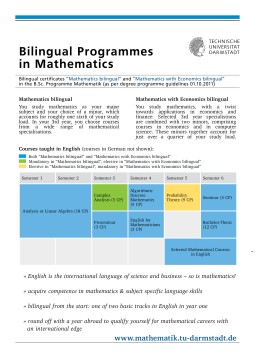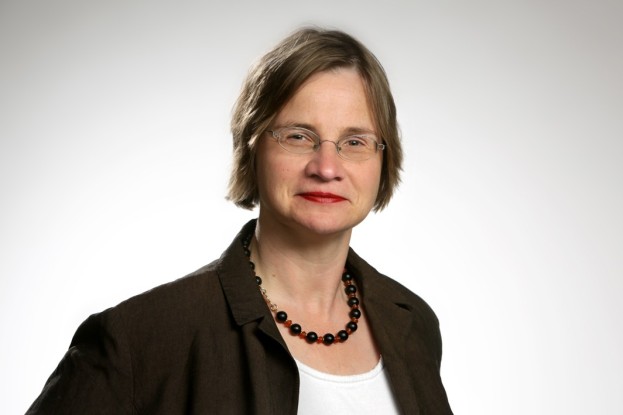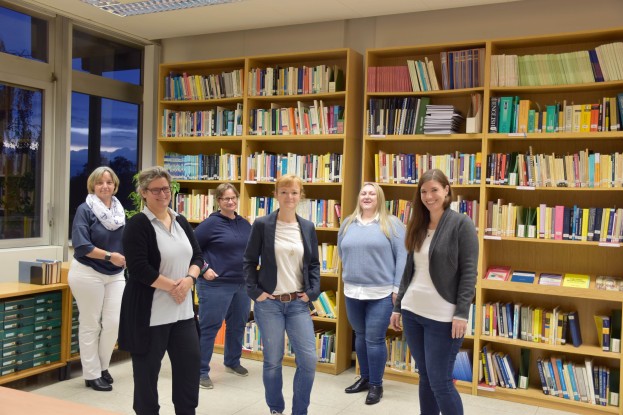English is the international language of science and business – so is mathematics!
In accordance with this motto, specialist English is an essential feature of a mathematician’s working life. Without it, international scientific and business relations are unthinkable.
The optional Bilingual Certificate enables you to start practising specialist English from the very first semester.
You have the opportunity to gain credit points (CPs) by taking mathematics modules taught in English. Every year, for example, one of the two lectures for new students is held in both English and German. If you accrue 50 of the 180 CPs on the Bachelor’s course in this way (including a mandatary module “English for Mathematicians” and an English Bachelor’s dissertation) you will be awarded our Bilingual Certificate at the end of your course.
• “Mathematics bilingual”
• “Mathematics with Economics bilingual”
External internship (B.Sc., M.Sc.)
In the Bachelor's and Master's programmes you can contribute the module “External Internship” (5 CP) once in total. In the respective regulations (see download area) you can read in which areas this can be contributed and you will find the exact module description.
The internship must have a certain relation to the professional practice of mathematicians. This must be certified by a lecturer of the department. The best thing to do is to contact a lecturer with a concrete proposal before the beginning of the internship and discuss the further procedure. Unfortunately, the Department of Mathematics cannot actively arrange internships. But if you are looking for ideas, here is the lecture series Heute Mathe, morgen…? here.
Industrial Internship
The department supports industrial internships. In some courses of study there is even the possibility to include industrial internships as study achievements (external internship). In other courses of studies at least a certificate can be issued that the industrial internship is approved. The prerequisite is that the industrial internship provides further education, represents a meaningful supplement to the studies and thus increases the student's chances of employment in the planned profession. The regulation is not intended to promote underpaid activities without social benefits. Working student activities without a concrete reference to the chosen course of study can therefore not be credited.
In the following courses of studies an industrial internship can be included in the course of studies: Bachelor's degree course from PO 2011 and Master's degree course from PO 2011, where the external internship with 3 CP (5 CP in SR 2018) is available.
Look for a professor of the department who has the strongest possible connection to the industrial internship you are planning and submit the project description to him/her. He/she will decide whether the industrial internship fits into your course of studies and will be supervised by him/her. You will report to him/her and submit an elaboration at the end. If necessary, you will present your internship in a seminar. You will then receive recognition for the external internship.
Leave of absence
Please note that you can also take leave of absence for a study-related internship, the duration of which takes up a larger part of a semester.
In order to smooth your path from your Bachelor’s to your Master’s study programme, you can accrue up to 30 CPs for your Master’s programme during your Bachelor’s programme. Any exams you pass for early Master’s achievements will be treated exactly as they would if they had been taken during the Master’s programme itself.
- Case 1: Bachelor’s modules to be included in the additional courses area can and should be registered through the Bachelor’s compulsive elective area (especially areas A, B, C, D for the PO 2018). When requesting your Bachelor’s degree certificate, you will specify which modules should be included in the Bachelor’s programme and which should be reserved for the Master’s programme.
Case 2: All other modules (e.g. minor subject, mathematical specialization, Master’s moduls for the additional courses area, and General Studies) must be registered as early Master’s achievements.
For activation by the Office for Student Affairs, please use the following link:
https://www.mathematik.tu-darmstadt.de/studium/studierende/pruefungsangelegenheiten/pan_bsc_msc/pruefungsplaene/pruefungsplan_po_2018/index.de.jsp
We recommend that you complete a voluntary examination plan before registering for early Master's achievements, because ss soon as an early Master's examination has been taken, only those Master's courses can be studied in which the early Master's examination can be introduced. Therefore, a conscientious Master's programme planning is urgently required before Master's examination achievements are brought forward.
It is possible to enrol in the Master's programme under reserve. This means that you can already enrol in the Master's programme if you have completed at least 160 CP in your Bachelor's programme.
After a successful application, you can be enrolled for a maximum of 2 semesters in both the Bachelor's and Master's programmes. If you have not completed your Bachelor's degree by the end of these two semesters, you will be de-registered from the Master's degree programme. After completing your Bachelor's degree, you can re-enrol on the Master's programme. Re-enrolment under reserve is not possible.
The application deadlines in TUCaN also apply to the Master's programme under reserve. We recommend submitting the certificate application to us together with the confirmation form that is generated after the TUCaN application.




